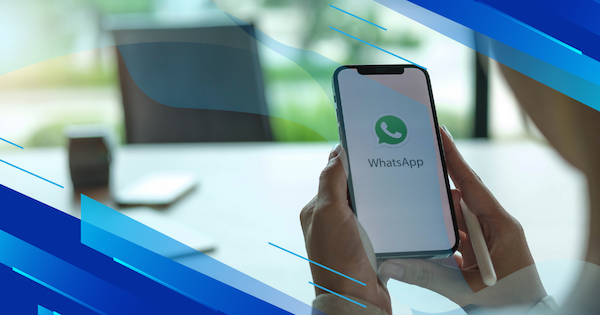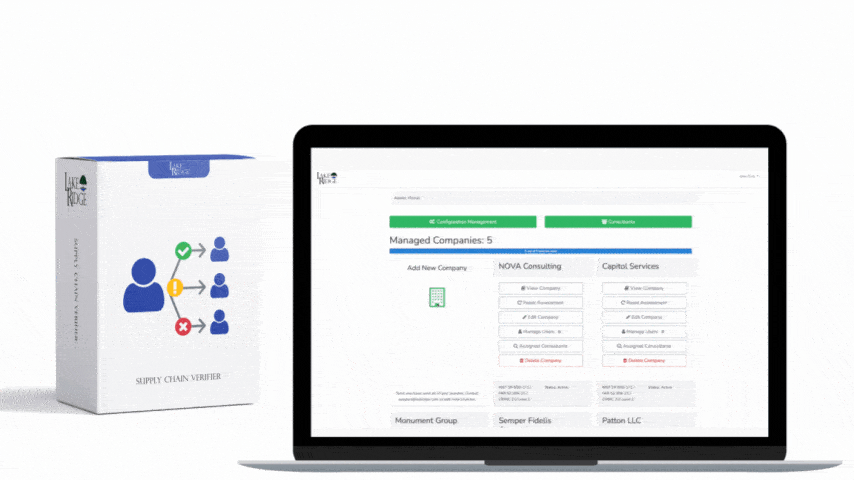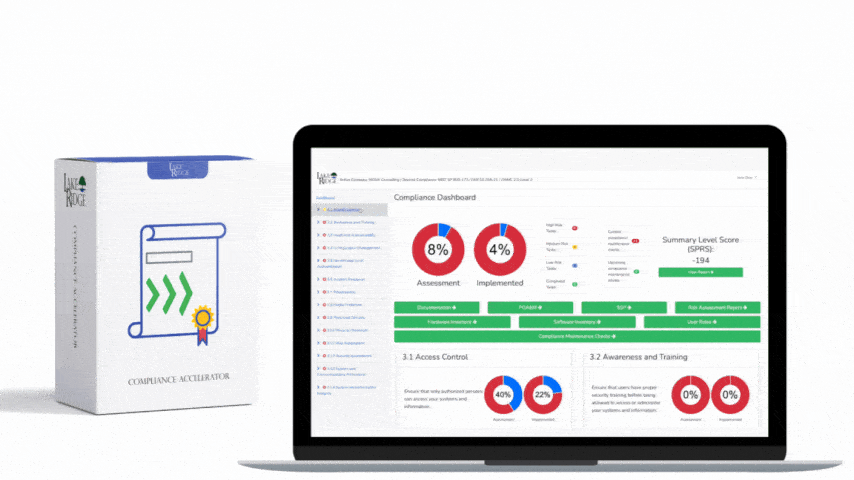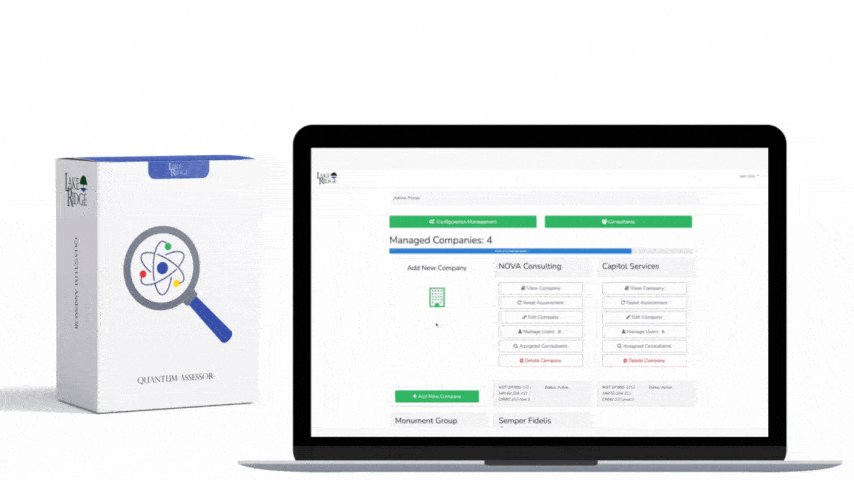Tired of being stalked, harrassed by your ex, hustled by spammers, or just want to improve your privacy? Follow the tips in this blog post to improve your privacy in WhatsApp.
Profile Picture:
Most people have themselves as their profile picture. Anyone who has your phone number can easily see what you look like because of your WhatsApp profile picture. In WhatsApp you can limit who sees your profile picture to only your contacts or all contacts except for the contacts you exclude. If you configure one of these settings, random people with your phone number can’t see your profile picture anymore. The most private recommendation for WhatsApp profile pictures is to simply not have one or have one that isn’t a picture of you.
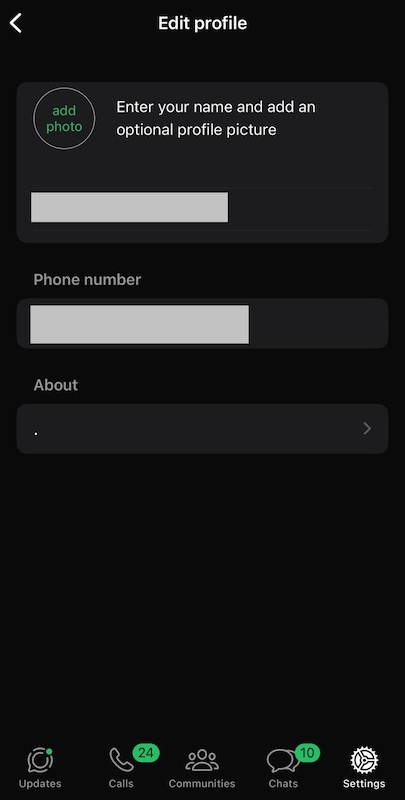
Name:
You may not want everyone with your phone number to know your real or full name. It is a good idea to use your nickname, initials, or a pseudonym on your WhatsApp. Your friends will already have you saved as your real name or what they know and that is what will appear in their WhatsApp.
Last Seen & Online:
In WhatsApp, unless disabled, others can see when you were last using the app or were online. Disabling this feature completely or limiting it to contacts provides you with additional privacy. You may receive a message or a call but want to ignore it, then having your last seen off would be helpful.
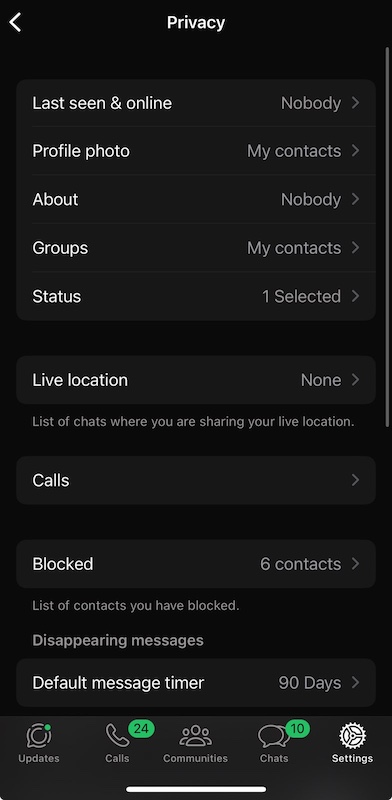
Hide Status:
You may not want everyone with your number to see your posted status. In this case you can limit status updates to only your contacts or a limited number of contacts.
Read Receipts:
You may not want someone you are messaging with to know that you viewed the message they sent. In this case, you need to disable read receipts.
Disappearing Messages:
A very useful privacy feature in WhatsApp is the “disappearing messages” feature. This allows WhatsApp to automatically delete your messages after a defined period. You can set this for individual conversations or set it for all conversations. This is particularly useful if you regularly send socially questionable messages, videos, and images or if you send private information over WhatsApp. I general though, you shouldn’t send anything digitally that you might regret later.
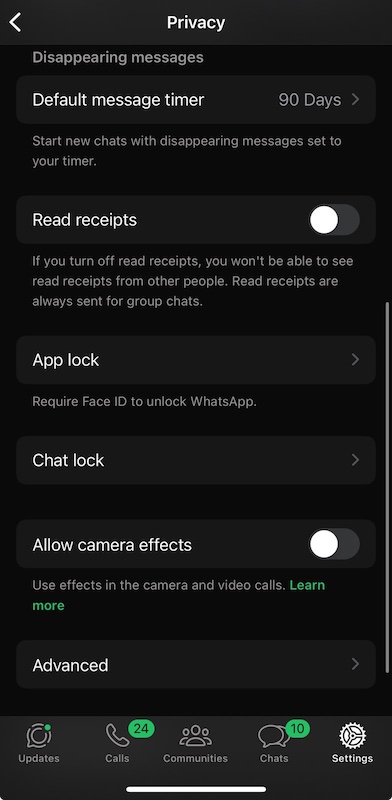
Blocked Contacts:
If you need to block a number, you can easily do so in WhatsApp. This will prevent them from contacting you.
Groups:
In general, you do not want others to have the capability to add or invite you to a group unless you trust them. When you get added to a group, everyone else in the group can see your phone number and your profile picture (unless you only share it with contact).
Groups:
In general, you do not want others to have the capability to add or invite you to a group unless you trust them. When you get added to a group, everyone else in the group can see your phone number and your profile picture (unless you only share it with contact). You can limit who can add you to a group to only your contacts or all contacts except for those you exclude.
Two-step Verification:
Two-step verification is an optional feature that adds more security to your WhatsApp account. When you activate "two-step verification," you can choose to provide your email address. This allows WhatsApp to send you a reset link via email if you forget your PIN, while also adding an extra layer of security to your account. Once "two-step verification" is enabled, WhatsApp will periodically prompt you to enter your PIN as a reminder. If you don’t reset the PIN, you’ll receive these reminders approximately once a week.
Block Unknown Account Messages:
To help prevent receiving spam and phishing attacks, you can block messages from unknown accounts. When "Block unknown account messages" is enabled, WhatsApp will restrict messages from unknown accounts if they exceed a high volume threshold. During this time, your existing contacts can continue to message you without interruption. The blocking feature will automatically deactivate once message activity returns to normal levels.
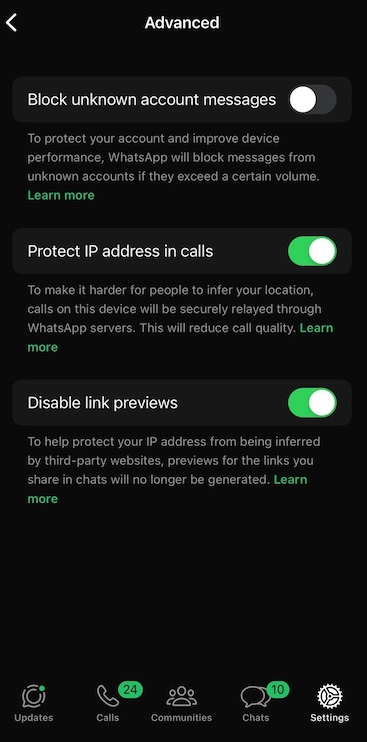
Protect IP Address in Calls:
To safeguard your internet protocol (IP) address during WhatsApp calls, you can route all calls through WhatsApp’s servers. By enabling the "Protect IP address in calls" feature, your calls will no longer connect directly, preventing your IP address from being exposed to the person you’re speaking with.
Disable Link Preview:
For enhanced security, you can enable the Disable link previews feature. When activated, the links you send to others will not generate a preview. This optional security layer helps protect your IP address, which may contain information that privacy-focused users prefer to keep confidential. The Disable link previews setting only applies to links you send and does not affect links you receive from others. Additionally, receiving link previews has no impact on your IP address.
Passkeys:
To verify that you own the phone number you wish to use on WhatsApp, we send you a registration code. Once your phone number is registered with WhatsApp, you have the option to set up a passkey for future verification. With a passkey, you can use Touch ID, Face ID, or your device passcode to confirm your identity. During registration, you can use the passkey as an alternative to receiving an SMS code.
Privacy Settings Outside of WhatsApp:
Some privacy settings you should consider for protecting yourself from WhatsApp can be configured in your phone’s settings. These include limiting location tracking, access to contacts, and access to your photo library.
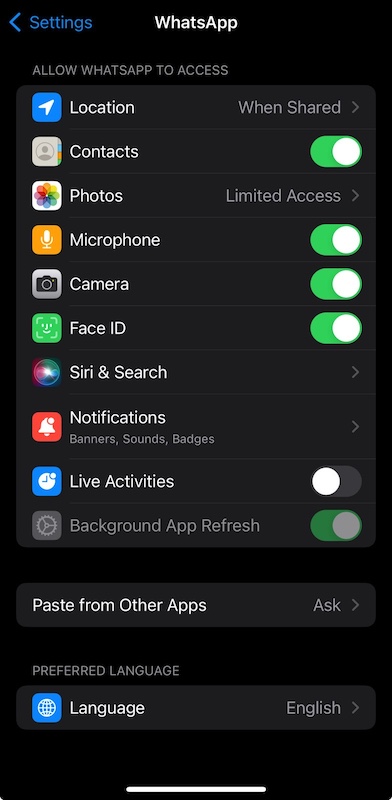
In conclusion, WhatsApp has many privacy settings that can be configured to protect your identity and improve security. By not configuring these settings you can expose yourself to stalking and cyber threats.
